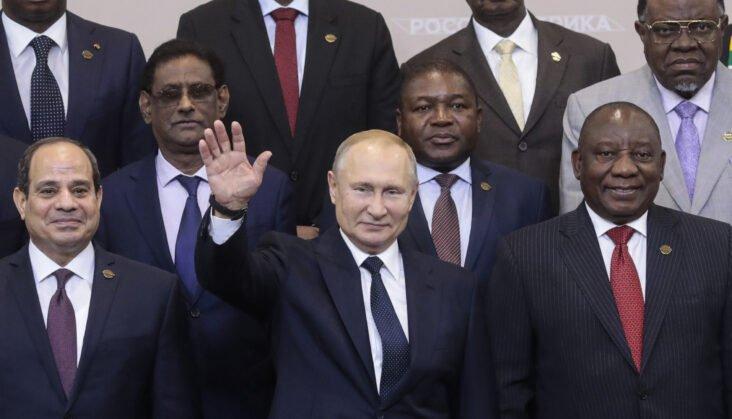Africa-Press – Botswana. Hopes that African oil-producing countries will be net winners from the surge in prices prompted by Russia’s invasion of Ukraine are wide off the mark.
The inflationary impact of the war will damage African economies along with those in Europe. Surging energy prices will mean higher African transport and food costs, according to Yvonne Mhango, head of Africa research at Renaissance Capital in Johannesburg.
Countries where transport and food make up a large share of the consumer price index will be the most affected by rising commodity prices, she writes in a research note on 3 March. Food and transport account for around 57% of the consumer price index in Nigeria, 54% in Ghana, 39% in Egypt and a third in Kenya.
High fuel prices are likely to delay the removal of Kenyan government fuel subsidies, so crowding out spending in areas like education, healthcare and infrastructure, Mhango argues.
That has already happened in Nigeria, where plans to withdraw subsidies in July have been postponed.
Kenya will also face more pressure on its budget deficit amid deteriorating public finances. The overvalued shilling means that Kenya is particularly vulnerable as an oil importer, Mhango writes.
Transport price inflation was the biggest driver of inflation in Rwanda in 2021, and is likely to remain so in the short term, she adds.
Cereals
Most wheat consumed in Africa is imported. Higher international cereal prices and loss of access to primary source markets may have severe political implications, according to research from Callee Davis, an analyst at Oxford Economics Africa.
The cost of living has a history of leading to street demonstrations in North Africa, and the “bread riots” of 1977 almost brought down Egypt’s government.
Cereal imports from Russia and Ukraine account for over 60% of Egypt’s total cereal imports, compared with 46% for Tunisia and 17% for Morocco. Tunisia is particularly reliant on Ukraine, which accounts for over 43% of its total cereal imports, according to Oxford Economics. In Nigeria, wheat accounts for one-quarter of cereal consumption, and all of it is imported, according to Rencap.
Innes McFee, Oxford Economics chief global economist, says it is now plausible that the fighting will last well into 2023, and that is not even a worst-case scenario. Global consumer confidence will suffer, McFee argues. This is especially important because the anticipated world economy depends heavily on affluent consumers being willing and able to spend the money which they have saved during the Covid-19 pandemic, he writes.
Tourism in Africa will also take a hit.
Russian tourists accounted for just under 7% of total tourist arrivals in Tunisia in 2019. Seychelles and Tanzania also had significant shares of Russian tourists, while Egypt had been banking on a restart of Russian tourist business after a six-year ban on direct flights between the countries was lifted last year.
That lead to a 62% surge in Egyptian travel receipts in the fourth quarter versus the third. But bookings from Russia have stopped altogether since the start of the conflict, Oxford Economics says.
Russian investment into Africa will also suffer.
Countries with mining operations owned by Russian corporates such as Zimbabwe, Sudan and Nigeria will likely be most affected, according to Mhango at Rencap.
Russian diamond mining company Alrosa operates in Angola, and aluminium company Rusal in Guinea.
Bottom Line
Africa has an overwhelming interest in peace in Europe.
For More News And Analysis About Botswana Follow Africa-Press






